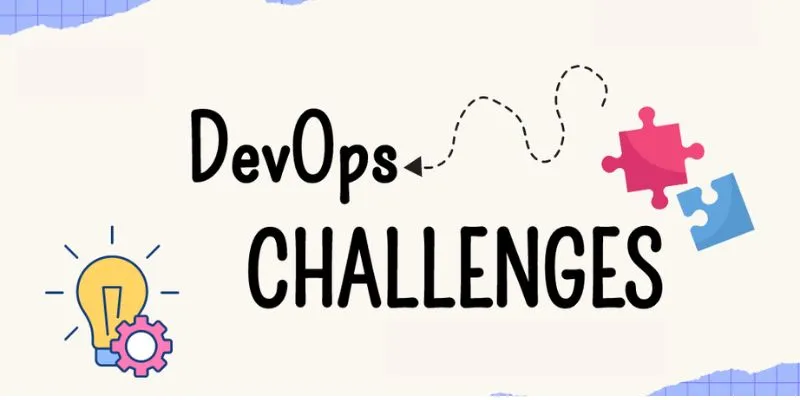
DevOps, a blend of “development” and “operations,” aims to unify software development and IT operations through automation, continuous integration, and continuous delivery. While the benefits are clear, organizations often encounter several obstacles during their DevOps journey. This blog explores ten major challenges and issues faced in DevOps implementation and offers insights into overcoming them. Are you looking to advance your career in Devops? Get started today with the DevOps Training in Chennai from FITA Academy!
Top 10 DevOps Challenges
Cultural Resistance
One of the most significant challenges in DevOps adoption is cultural resistance. DevOps requires a shift from traditional silos to a collaborative culture where development and operations teams work together seamlessly. Employees accustomed to working in isolated environments may resist this change, fearing loss of control or job security.
Solution: Promote a culture of collaboration through training, workshops, and by demonstrating the tangible benefits of DevOps. Leadership should actively support and advocate for cultural change.
Integration of Legacy Systems
Solution: Gradually refactor legacy systems to make them more compatible with DevOps practices. Implementing microservices architecture can also help in breaking down monolithic systems.
Tool Overload
The DevOps ecosystem is rich with tools for various purposes, from continuous integration to monitoring. However, the abundance of tools can lead to tool overload, making it challenging to choose the right set for specific needs.
Solution: Conduct thorough research and evaluation to select tools that align with your organization’s goals. Standardize tool usage across teams to reduce complexity and improve efficiency.
Security Concerns
Integrating security into the DevOps pipeline (DevSecOps) is essential, but it poses significant challenges. Ensuring that security measures do not slow down the development process requires a delicate balance.
Solution: Automate security testing and integrate it into the CI/CD pipeline. Educate development teams on secure coding practices and the importance of security in the DevOps process. For expert guidance on security integration in DevOps, you can rely on the Best Training Institute in Bangalore to enhance your skills and knowledge in secure development practices.
Scalability Issues
Scaling DevOps practices across multiple teams or departments can be challenging. What works for a small team may not necessarily work for larger teams or entire organizations.
Solution: Start with pilot projects to refine DevOps practices before scaling them across the organization. Use scalable tools and frameworks to support the growth of DevOps initiatives.
Skill Gaps
The successful implementation of DevOps requires a specific skill set that includes knowledge of coding, automation, and cloud services. Many organizations face skill gaps that hinder DevOps adoption.
Solution: Invest in trainings and development programs to upskill existing employees. Hiring experienced DevOps professionals can also bridge skill gaps and drive the adoption process. Learn all the Devops techniques and become a devops developer. Enroll in our Devops Online Course.
Complexity of Continuous Integration/Continuous Deployment (CI/CD)
Setting up and maintainings a CI/CD pipeline can be complex, especially for organizations new to DevOps. Issues such as integration failures, deployment errors, and testing challenges are common.
Solution: Simplify the CI/CD pipeline by automating as much as possible. Use robust testing frameworks and continuously monitor the pipeline for any issues that need addressing.
Performance Monitoring and Management
Effective performance monitoring is crucial in a DevOps environment to ensure that applications run smoothly in production. However, monitoring distributed systems and microservices can be challenging.
Solution: Implement comprehensive monitoring tools that provide real-time insights into system performance. Use automated alerts and dashboards to stay on top of potential issues.
Managing Infrastructure as Code (IaC)
Infrastructure as Code (IaC) allows for the automation of infrastructure management, but it also introduces complexity. Misconfigurations or errors in IaC scripts can lead to significant issues.
Solution: Use version control for IaC scripts and conduct regular code reviews. Implement automated testing for IaC to detect errors before they reach production.
Measuring DevOps Success
Measuring the success of DevOps initiatives can be challenging. Traditional metrics may not accurately reflect the improvements brought by DevOps practices.
Solution: Develop specific DevOps metrics, such as deployments frequency, lead time for changes, and mean time to recovery. Use these metrics to continuously assess and improve DevOps practices.
DevOps presents numerous challenges, but with careful plannings and strategic implementations, these challenges can be overcome. By addressing cultural resistance, integrating legacy systems, managing tool overload, and ensuring security and scalability, organizations can reap the full benefits of DevOps. Continuous learning and adaptations are key to overcoming the complexities and achieving a successful DevOps transformation. Looking for a career as a devops developer? Enroll in this Advanced Training Institute in Chennai and learn from experts about devops testing techniques and tools.
Read more: Exploring Java 17’s New Language Features
